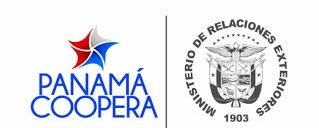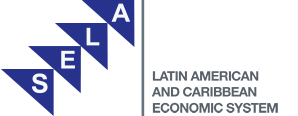BACKGROUND
Since 1983, the Permanent Secretariat of SELA was designated as regional focal point for the exchange of information on Technical Cooperation among Developing Countries, through Decision No. 156, as adopted by the Latin American Council.
Since its inception, one of the fundamental objectives of SELA has been “to promote intra-regional cooperation, order to speed up the economic and social development of its members”. Hence, in 1987 SELA instituted the Meetings of Inter-Regional Cooperation Directors for Latin America and the Caribbean, in order to provide a space for meetings and exchanges of ideas and experiences among the main actors of international cooperation, fundamentally among the government focal points in charge of cooperation in the Member States, regional and international organizations, academic institutions and the private sector, but especially with bilateral development agencies of industrialized countries and the members of the Organization for Economic Cooperation and Development (OECD) that contribute cooperation resources to Latin American and Caribbean countries.
For the region and for the international cooperation authorities of Latin America and the Caribbean, it is important to know, from the region’s perspective, the various projects and cooperation initiatives that the international, bilateral, multilateral and even private stakeholders are implementing in Latin America and the Caribbean, so as to achieve a better and more efficient use of cooperation and to develop strategies to attract resources that may be available to the countries of the region, coming from different modalities of international cooperation.
International cooperation, Official Development Assistance and South-South Cooperation provide substantial resources that complement national budgets to encourage and promote development. The goal of contributing 0.7% of GDP to official assistance to development has only been reached by a few donor countries and the average ODA of the 27 countries that make up the Development Assistance Committee (DAC) stagnated at 0.3% of GDP (OECD, 2014). Paradoxically, despite such stagnation, total ODA has progressively increased since 2007, when it reached its lowest level in the last decade, standing at US$ 116,000 million (ibid.), and rose to US$ 137,200 million in 2014 (ibid.). However, Latin America and the Caribbean received only US$ 10,079 million of that total for that same year (World Bank, 2014).
For this reason, it was deemed appropriate to organize a regional meeting so that bilateral and multilateral donors, as well as non-traditional donors (which are not members of the OECD or the DAC) can present a balance of the programmes, projects and initiatives that they are executing or are planning to undertake in Latin America and the Caribbean to the government authorities in charge of cooperation in the Member States. With this, it will be possible to achieve better coordination of regional cooperation and greater knowledge about it.









